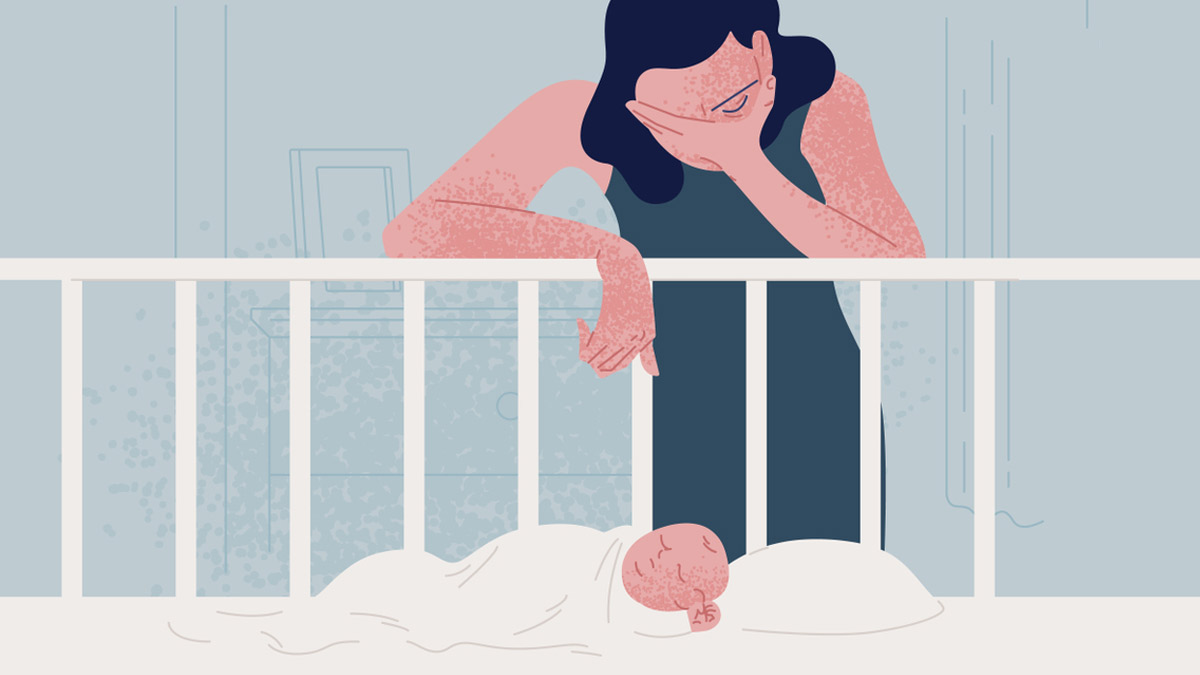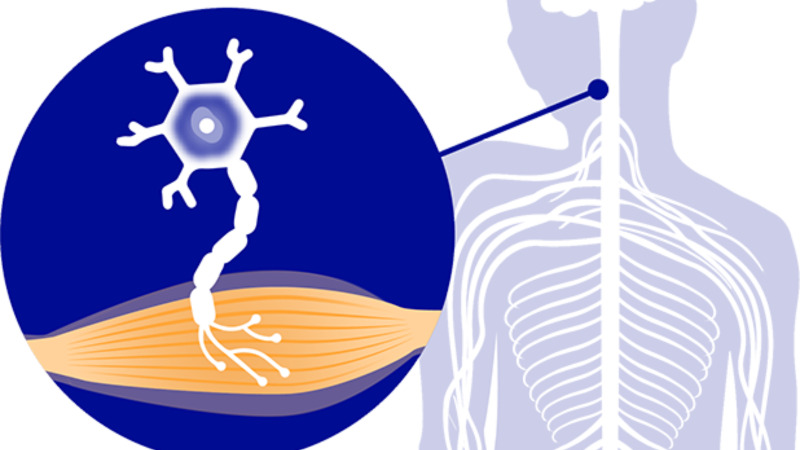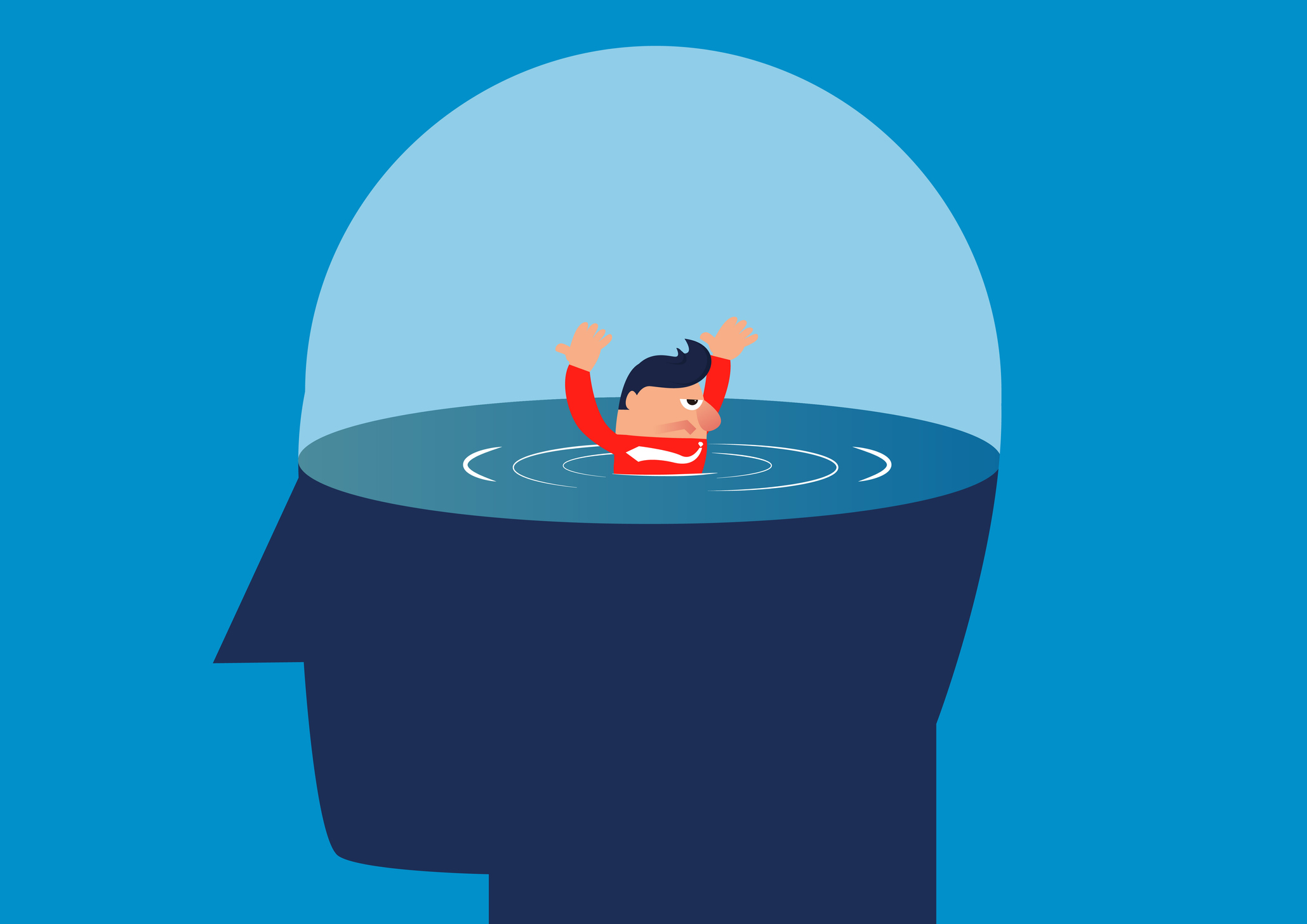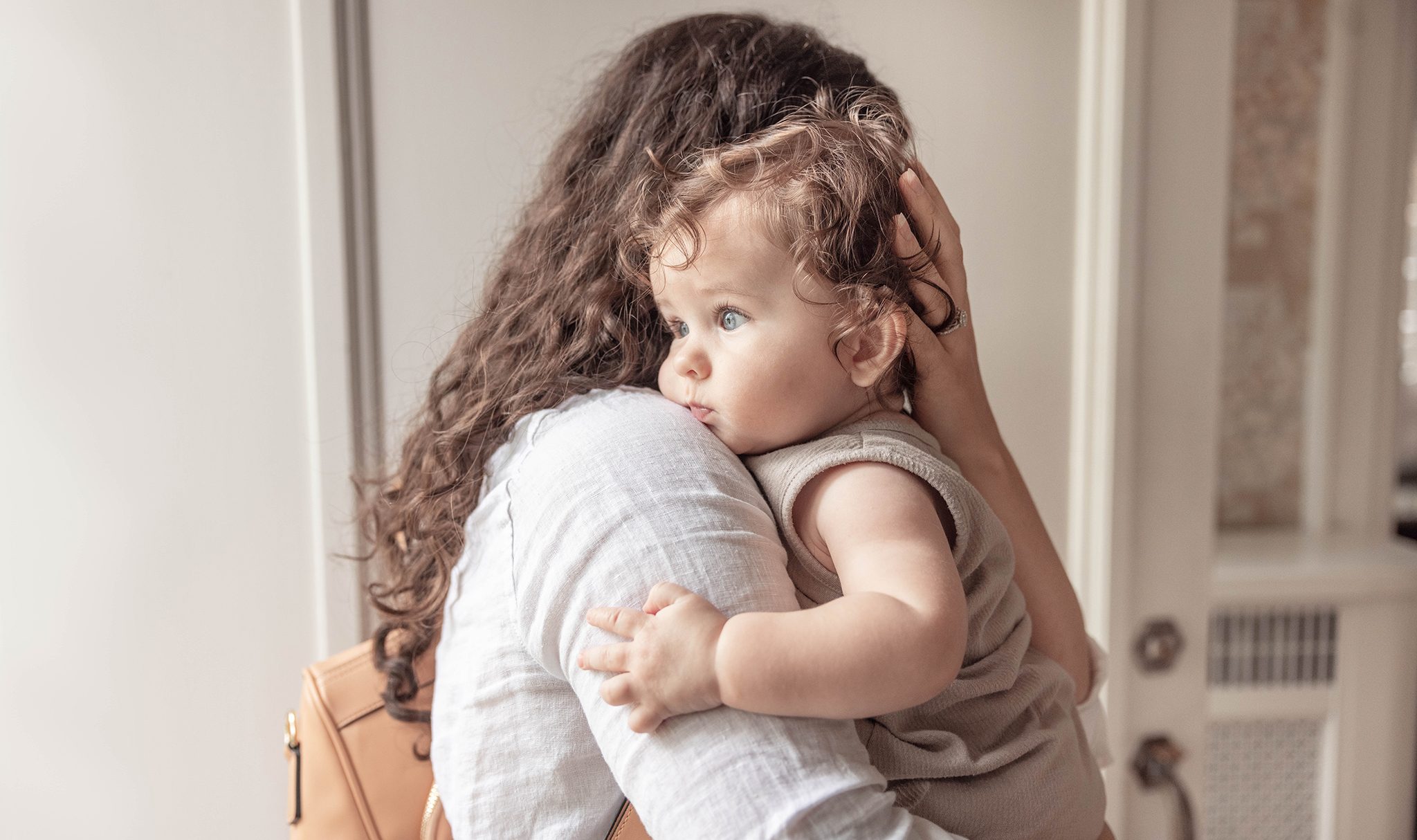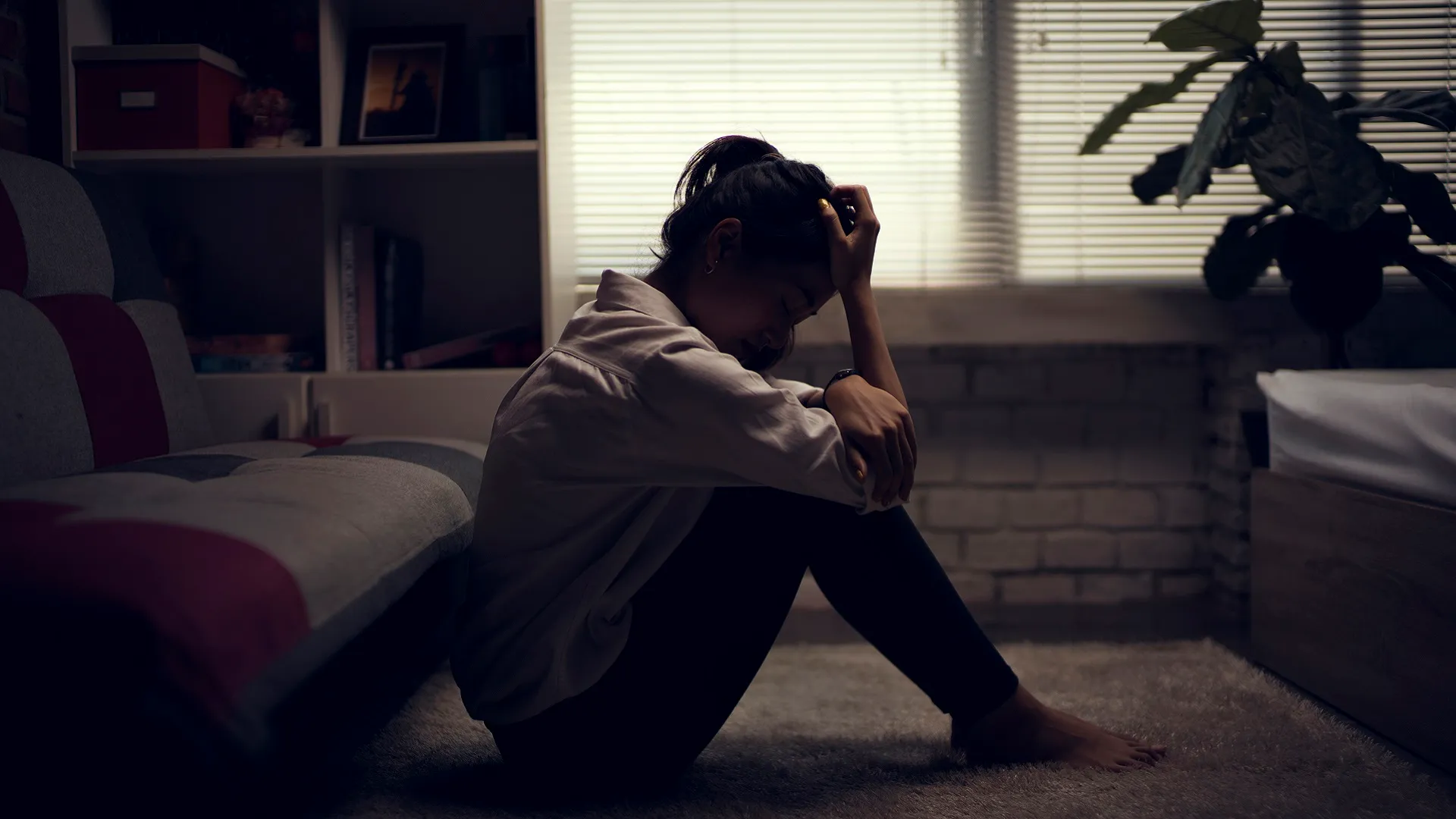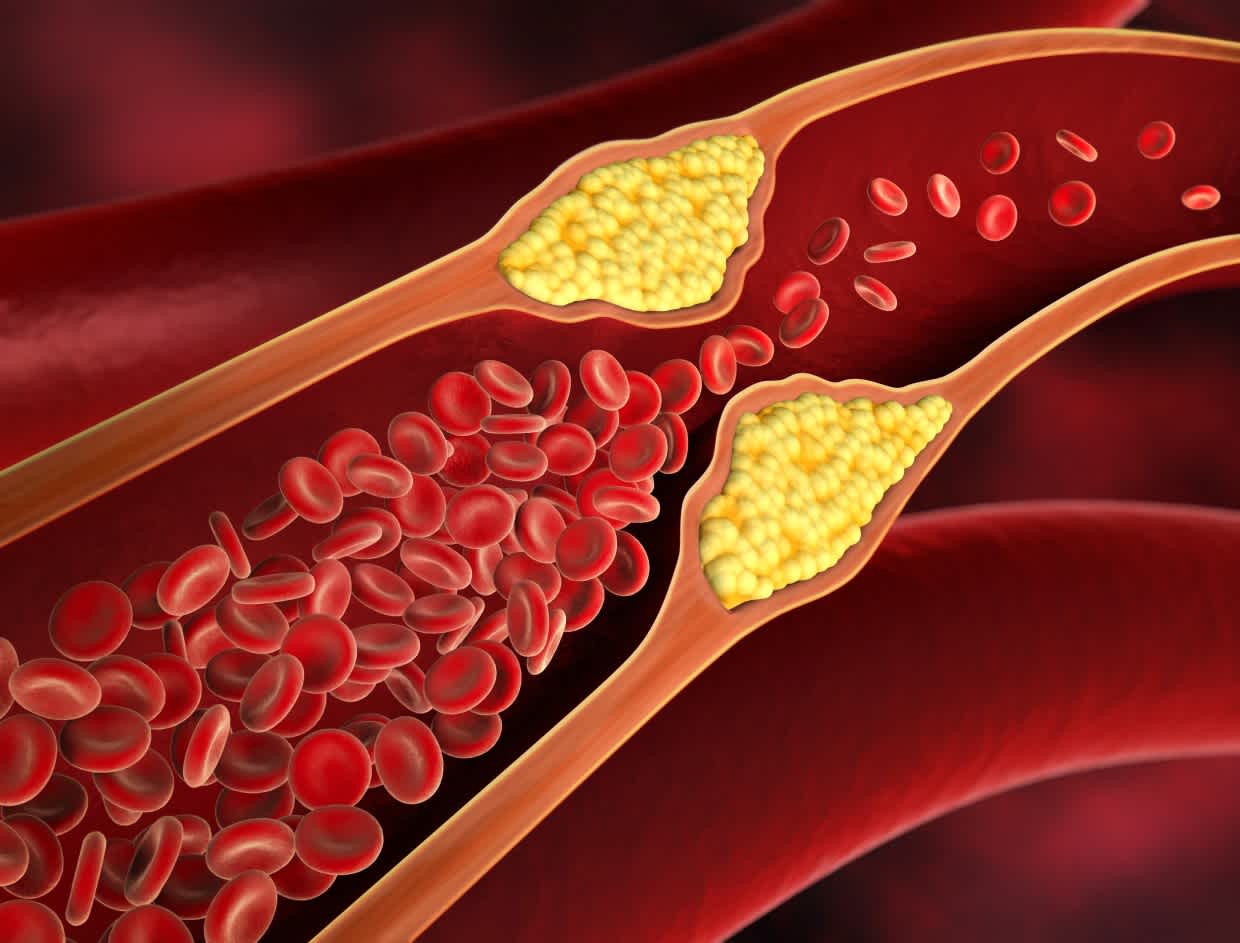Postpartum anxiety is a form of anxiety that occurs after giving birth and can affect mothers during the postpartum period. It’s essential to note that postpartum anxiety is different from the more widely known condition called postpartum depression, although they can sometimes occur together.
The experience of postpartum anxiety can vary from woman to woman, but some common feelings and symptoms include:
- Excessive worry: Mothers with postpartum anxiety often experience intense and persistent worrying about their baby’s health, safety, or well-being. They may have intrusive thoughts about potential dangers or harm befalling their child.
- Restlessness and difficulty sleeping: Anxiety can lead to restlessness, making it challenging to relax or fall asleep, even when the baby is sleeping. This lack of sleep can further exacerbate feelings of anxiety.
- Physical symptoms: Postpartum anxiety may manifest with physical symptoms such as racing heart, sweating, trembling, dizziness, nausea, and shortness of breath.
- Fear of being alone with the baby: Some mothers with postpartum anxiety may feel uneasy or fearful about being alone with their newborn, worrying they won’t be able to handle situations that arise.
- Irritability and nervousness: Mothers may feel on edge, irritable, or easily agitated, even in situations that would not typically provoke such feelings.
- Avoidance of certain situations: Some women may avoid situations or places due to fear or anxiety about their baby’s safety.
- Hyper-vigilance: Constantly being on high alert or hyper-vigilant about the baby’s well-being is a common symptom. This excessive vigilance can lead to exhaustion and further intensify anxiety.
- Intrusive thoughts: Postpartum anxiety may also involve intrusive thoughts, which are distressing and unwanted mental images or ideas about potential harm coming to the baby or other worries.
It’s essential to remember that experiencing some level of worry and anxiety after giving birth is normal, but when these feelings become overwhelming and interfere with daily functioning and well-being, it may be indicative of postpartum anxiety. If a new mother or someone you know is experiencing severe anxiety symptoms after childbirth, it is crucial to seek help from a healthcare professional. Postpartum anxiety is treatable, and with the right support and treatment, many mothers can recover and enjoy their time with their baby more fully.


